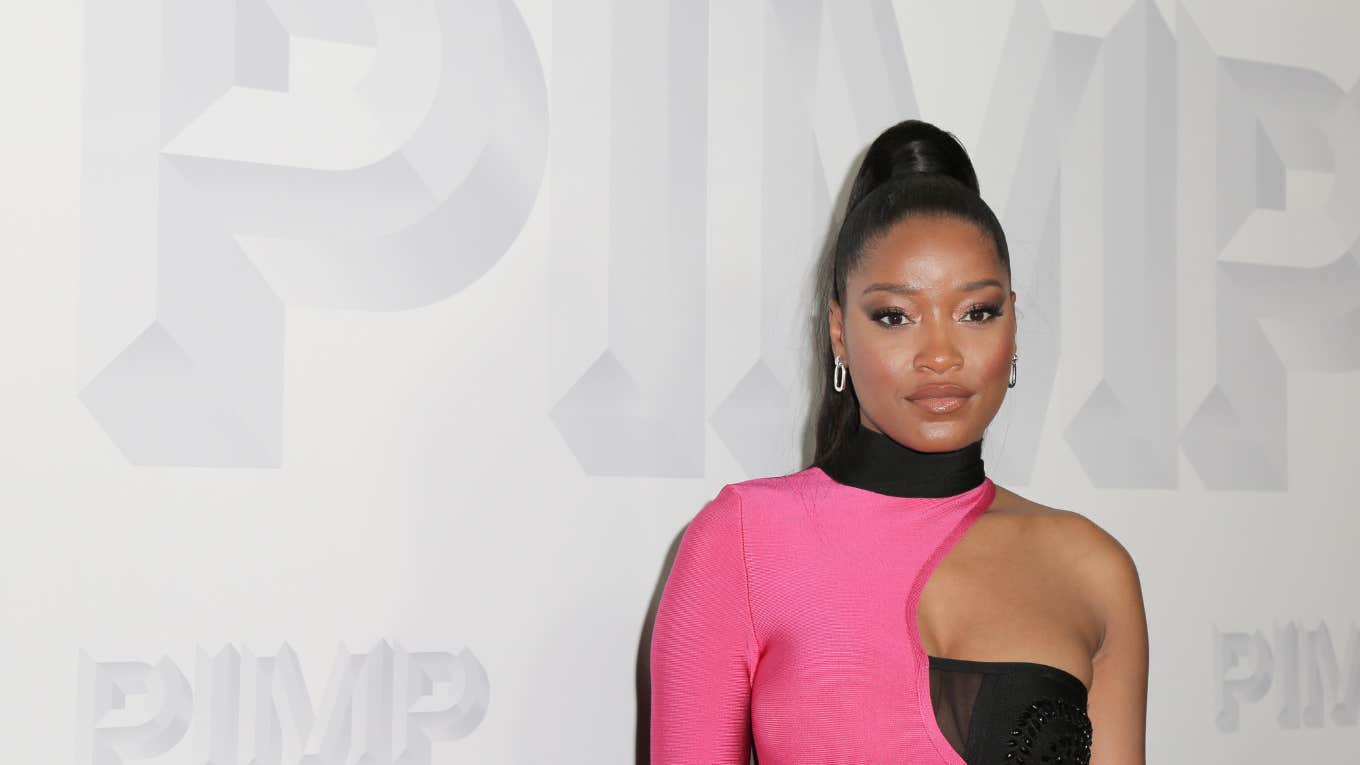We Shouldn't Need To See The Photos Circulating From Keke Palmer's Restraining Order To Believe Her
We need to start protecting and believing Black women.
 Parisa Michelle / Shutterstock
Parisa Michelle / Shutterstock Keke Palmer has taken legal action against her ex-boyfriend, Darius Jackson, and has requested sole custody of their eight-month-old son, Leodis, after alleging that Jackson was physically abusive to her throughout their two-year relationship.
Palmer, who first met Jackson in May 2021 during an after-party for Issa Rae's hit HBO drama show 'Insecure,' filed a request for domestic violence with emotional abuse restraining order in Los Angeles. In the court filings, the 'Nope' actress said that the two had dated from June 2021 until October 2023, but alleged that the abuse continued even after they were broken up.
Keke Palmer provided photo and video evidence of the abusive nature of her ex-boyfriend.
According to Us Weekly, Palmer provided surveillance footage and screenshots from a November 5 incident where Jackson "trespassed into my home without my knowledge or consent" and "threatened" her before "lunging for my neck, striking me, throwing me over the couch and stealing my phone."
She went on to allege "many instances of physical violence" from Jackson, including him "destroying my personal property," hitting her in front of their son, threatening to kill himself with a gun "if I left him, harassment, and other physical and emotional abuse."
The screenshots from the footage of Jackson attacking Palmer have since begun circulating on social media, and there are already claims and opinions of people saying that if Jackson had been abusive for the majority of their relationship, why didn't she leave him? Unfortunately, this narrative is part of a larger debate not only surrounding the lack of protection that Black women experience but also placing the blame on the victim instead of the perpetrator — which is abusive men.
There needs to be more work done to dismantle the lack of support that Black women experience when coming forward with allegations like this.
There's no way to beat around the bush — we shouldn't have to see the photos and videos of Palmer's abusive ex-boyfriend committing violence against her. None of that should matter. The moment that Palmer came forward and opened up about her toxic and manipulative relationship should've been the moment that we all believed her.
In a time where the #MeToo Movement exists and steps have been taken to properly discipline abusive men and not let them get away without penalties, Black women's voices have often been excluded from these conversations. The public tends to disregard Black women's stories of being in frightening and abusive situations, and the acknowledgment of our pain tends to be brushed under the rug.
The numbers don't lie either as Black women are more likely to experience violence at the hands of men compared to our white counterparts. According to the Institute for Women's Policy Research, more than four in ten Black women experience physical violence from an intimate partner during their lifetimes. White women, Latinas, and Asian/Pacific Islander women report lower rates.
Black women also experience significantly higher rates of psychological abuse, including humiliation, insults, name-calling, and coercive control. A 2015 Violence Policy Center study found that Black women were two and a half times more likely to be murdered by men than their white counterparts, and more than nine in ten Black female victims knew their killers.
Similarly to Keke Palmer, Megan Thee Stallion was forced to defend her victimhood.
If anything, we've seen the same backlash and commentary that followed Megan Thee Stallion after she came forward and took legal action against rapper Tory Lanez for shooting her in the summer of 2020. In a New York Times op-ed that Megan Thee Stallion wrote, the rapper was asked what it means to be a woman of color.
In a video accompanying the op-ed, Megan answered: "constantly having to prove that she’s a victim because society sides with a man."
During an emotional testimony that she gave against Tory Lanez in December 2022, Megan tearfully admitted that she'd had a hard time combatting all of the negative stories that had come out, accusing her of lying about being shot and undermining her role as the victim in the scenario.
"I don't want to live," Megan said, according to PEOPLE. "I wish he had just shot and killed me if I had to go through this torture."
Megan Thee Stallion was belittled and shamed following a terrifying and life-changing moment in her life. People claimed that she wasn't a "perfect victim" because she'd had a romantic relationship with Tory Lanez, but a perfect victim doesn't exist. Any victim of domestic violence, abuse, or assault, deserves justice.
Keke Palmer explained in her court filings against Jackson that he had been harming her throughout their relationship, even before she got pregnant. Leaving an abusive relationship is not as easy as some people assume it to be. Abuse can be a progressive thing sometimes, and a partner can seem as if they love and care about you, but in that same breath, will immediately flip the switch the next moment and become an entirely different, and scary, individual.
Comments like the ones Megan Thee Stallion and Palmer are receiving are just one of the reasons why Black women often stay silent in choosing to confront their abusers. Until we begin protecting and believing Black women, the idea of liberation is a fantasy.
If you or someone you know is experiencing domestic violence or the threat of domestic violence, call the National Domestic Violence Hotline for help at 1-800-799-SAFE (7233), or go to www.thehotline.org
Nia Tipton is a Chicago-based entertainment, news, and lifestyle writer whose work delves into modern-day issues and experiences.

